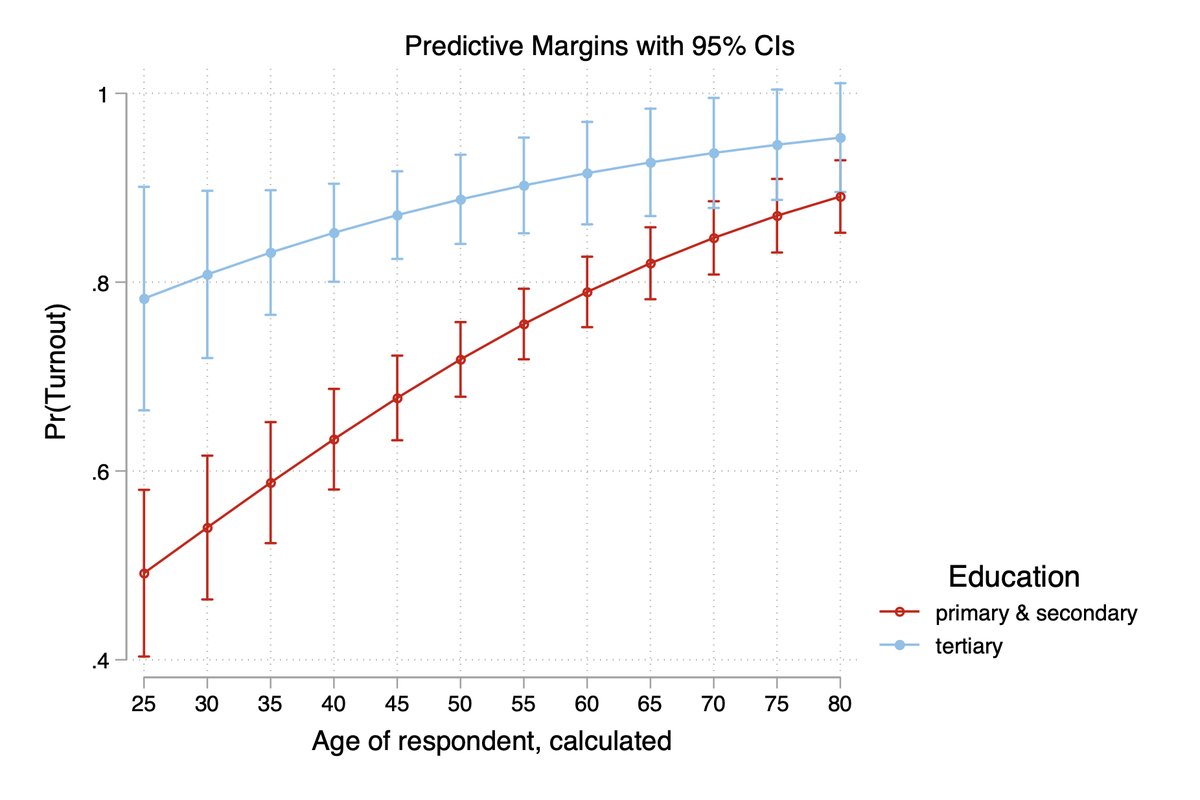Portugal votes tomorrow. The decline in electoral turnout since the establishment of democracy has been spectacular { 

In fact, Portugal has one of the lowest turnouts in legislative elections of all the countries in the CPDS dataset 

One relevant factor for the 2019 elections is that electoral law changed and residents abroad (Portugal has a huge diaspora) are now automatically registered. The electorate abroad expanded from ca. 250'000 to 1.5 million between the 2015 and 2019 elections. 

And abstention among Portuguese nationals abroad is extremely high. Abstention among the Portuguese in Portugal has increased too, but the change in the rules also multiplied by 6 and electorate where abstention is almost 90%, bringing total abstention further down. 

Talking about turnout, I had looked at the impact of Covid on turnout at the 2021 presidential elections. The municipalities where the incidence of covid was the highest around the election were also those where turnout declined the most. 

Obviously legislative and presidential elections are different, but this should affect the level, not the slope.
This is the probability to have voted in Portugal by age and education (ESS 2018). Younger people are less likely to vote, but the difference is mostly due to generational differences among those with lower levels of education. 

Important to say that most surveys overestimate turnout. The turnout reported in surveys is always higher than the real one.
• • •
Missing some Tweet in this thread? You can try to
force a refresh

















